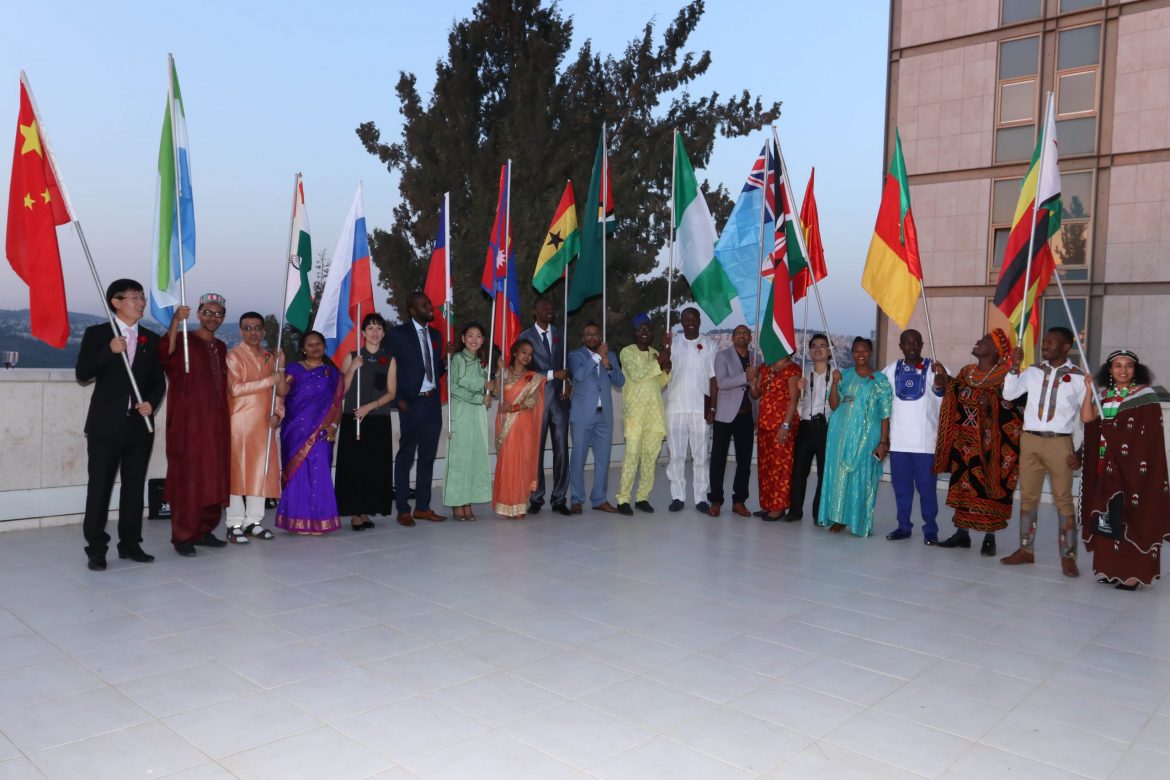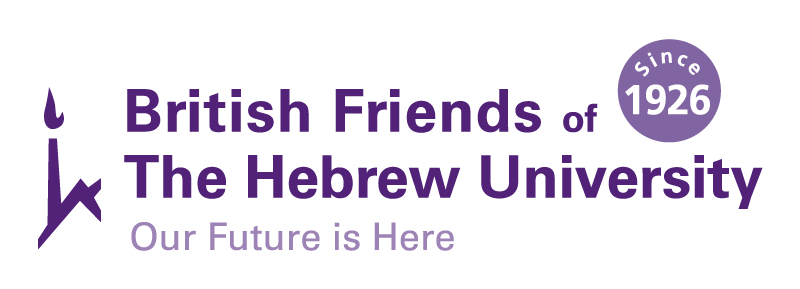
Jerusalem public health program continues to attract African students
A LANDMARK year in Israeli foreign policy, 2017 saw some promising sparks in the rekindling of Israel-Africa relations. Of course, attempting to forge anything meaningful with most of the 48 sub-Saharan states is impeded by seemingly intransigent political obstacles. However, Israel’s commitment to facilitate development within Africa has a long history – long for this part of the world. It goes back to the very first decades of the state, when Israel rapidly transitioned into a developed country, and recognized that it had some important know-how to share with African states newly emerging from colonial rule. Although the number of cooperative ventures in Africa plummeted in the 1970s, a single Israeli initiative, established in 1971, has continued to provide high-level training in Israel for African students. The International Masters of Public Health (IMPH) at the Hebrew University-Hadassah Braun School of Public Health and Community Medicine, taught in English, gives over 20 students from all over the world full scholarships to study in Israel in this 12-month program. The IMPH brings together an inspirational group of young health professionals, and provides them with the skills to transform healthcare in their home countries. About half are from Africa. The school’s origins, and that of the IMPH, are an out-of-Africa story. During the1940s, South African physicians, Dr. Sidney Kark and his wife Dr. Emily Kark, set up a healthcare center in Pholela, in Zululand. Here they developed a model of Community-Oriented Primary Care (COPC) that would become the gold standard throughout the world. Sidney Kark, born in Johannesburg in 1911 to Lithuanian parents who had immigrated there in the 1880s, left South Africa with his wife in 1952 – a time when many health professionals emigrated because changes in the national government made it impossible for them to continue their work. Following a short stint in the US, Jerusalem became the Karks’ home. In 1961, Dr. Sidney Kark set up Israel’s first school of public health at the Hebrew University. The 1960s were the golden age of Israel-Africa relations – over 1,000 Africans came to Israel each year to attend academic courses, primarily in agriculture and medicine. And the Israeli government sent hundreds of Israeli experts to work in over 30 different countries in Africa. These partnerships were the cornerstone of Israeli foreign policy, introduced by Golda Meir when she became Israel’s foreign minister in 1956. Expertise, not money, was what Israel could provide African states, she explained. Writing in her biography (“My Life,” 1975), Meir said, “Did we go into Africa because we wanted votes at the United Nations? Yes, of course…. But it was far from being the most important motive.”
IF YOU want to recalibrate your natural cynicism about Israel’s activities in Africa, spend some time at the Braun School; it’s no more than a couple of short corridors trailing off from the Hadassah Nursing School – a part of the Hebrew University-Hadassah Medical Center at Ein Kerem. The current director of the Braun School, Prof. Ora Paltiel, told me with passion and sincerity that this program is “the best thing that Israel does.” No small claim! But just listen to her for ten minutes; speak with previous director Prof. Yehuda Newmark; chat with Dr. Maureen Malowany, the IMPH Alumni Academic Coordinator; join some of the current group of students for coffee; peruse the list of achievements of IMPH alumni; listen to the donors who sponsor the program. That’s what I did. Paltiel’s right. “Build a hospital,” explains Neumark, “and the patients will come,” but invest money in public health and the need for hospitals reduces. Shifting money from bricks and mortar to programs of prevention is not an easy sell in a world where patients are most impressed by hi-tech machines and a surgeon’s deft use of a scalpel. Diagnosis and treatment, explains Paltiel, are more impressive than prevention. Nobody hears anything from non-patients: no complaints, no gratitude. They will merely be registered in a statistic – a dot on a graph showing the improvement in longevity, the reduction in infant mortality, the decrease in the incidence of cancer. Public health is not the type of medicine that boasts cures and claims headlines. Donors, who fund the IMPH program and provide full scholarships to the students, are necessarily a particularly visionary group of people. There, are for example, two scholarships funded by the British Friends of the Hebrew University. Their CEO, Nigel Salomon, told me “that for us, at the British Friends, the IMPH program epitomizes the core philosophy of the Hebrew University – as envisaged by founder Albert Einstein – the development and sharing of knowledge for the benefit of humankind across the globe.” Eight students from Africa are funded by the Pears Foundation – an independent, British family foundation whose Executive Chair, Sir Trevor Pears CMG, identifies the essence of the IMPH when he explains, “If I had to pick one partnership that is most emblematic of our Foundation’s identity and values it would be this one. It links Jewish values, Israeli expertise and the skills and knowledge of the students themselves to create a truly global cohort of leaders who can create lasting change in their own countries. I am proud and humbled by every Pears scholar I meet, and it is a privilege to support them.” A 30-minute break for the students, in a day packed with back-to-back classes, gives me the opportunity to chat with some of them. I meet Dr. Wirngo Mahamadu Suiru Bamenda, a general physician in his early thirties from Cameroon. He was appointed four years ago the Chief Medical Officer in the Northwest Region of Cameroon – a meteoric rise for a newly qualified doctor, which he attributes to his “seriousness” and “calm nature.” He explains earnestly how the IMPH program will give him the skills to return to Cameroon and set up a Public Health Institute. It will be a place for training general physicians to implement public health programs in their own communities. He gives a clear outline of the steps he will take toward this goal. His leadership qualities are obvious. Next, I am joined by Melchizedek Nyakundi Mokaya, a social worker, who made his choice of career because social workers were responsible for transforming his life. Describing himself as “a slum boy,” he explains that social workers helped him in every way and found scholarships to pay for his education. One of his first jobs as a social worker was to manage a drop-in center for street children in Nairobi – children enduring a childhood similar to his own. More recently he has worked as a probation officer. The research skills taught in the IMPH will give him just what he needs to research the causes of crime among juvenile petty offenders in Kenya and to evaluate methods of crime prevention. He is already affiliated to the prestigious African Population Health Research Center. Finally, I have just enough time to meet with Dr. Naomi Teshome, a general physician from Ethiopia, who at 26 years old has already taken a Harvard School of Public Health course in Health Economics, a specialist program in pediatrics, a course in project management, and an internship at Ben-Gurion University in Israel. It was at Ben-Gurion that she learned about the IMPH. Like her fellow students, Naomi, sees her career path as a vocation. Becoming a doctor was something she always wanted to do. “Coming from a country where there is a big shortage of doctors, I wanted to be part of the solution.” After graduating she went to work in a poor, rural community in Ethiopia, where she soon discovered that all her medical training was irrelevant. “No antibiotics, no lab tests. The absence of medical resources totally changed my perspective.” She realized that it would be public health programs that would make the difference by preventing many diseases and health problems. She is thrilled to be studying in the IMPH program – this will give her the tools to go back and work in government. Her ambition is to be a policy maker who will ensure the implementation of public health initiatives throughout Ethiopia. A quick photo of these charming, intelligent, inspirational students, and they head off for a class on statistics. I meet with Dr. Maureen Malowany. She has prepared a folder for me of recent alumni and their subsequent career paths. Their achievements are extraordinary. They hold leading positions in ministries of health, global health organizations, universities. They work on programs to improve food security, sanitation, hygiene. They are found at the forefront of organizing the medical response in disasters – from the Westgate Shopping Mall attack in Nairobi, the Ebola epidemic in West Africa, to camps for Syrian refugees. They do research, implement health prevention programs, shape national and international health policies. The students I met today will soon join this remarkable elite of graduates. The IMPH is, as Paltiel says, “Israel’s gift to the world.”
By Susan Goodman
This article was originally printed in The Jerusalem Report.
